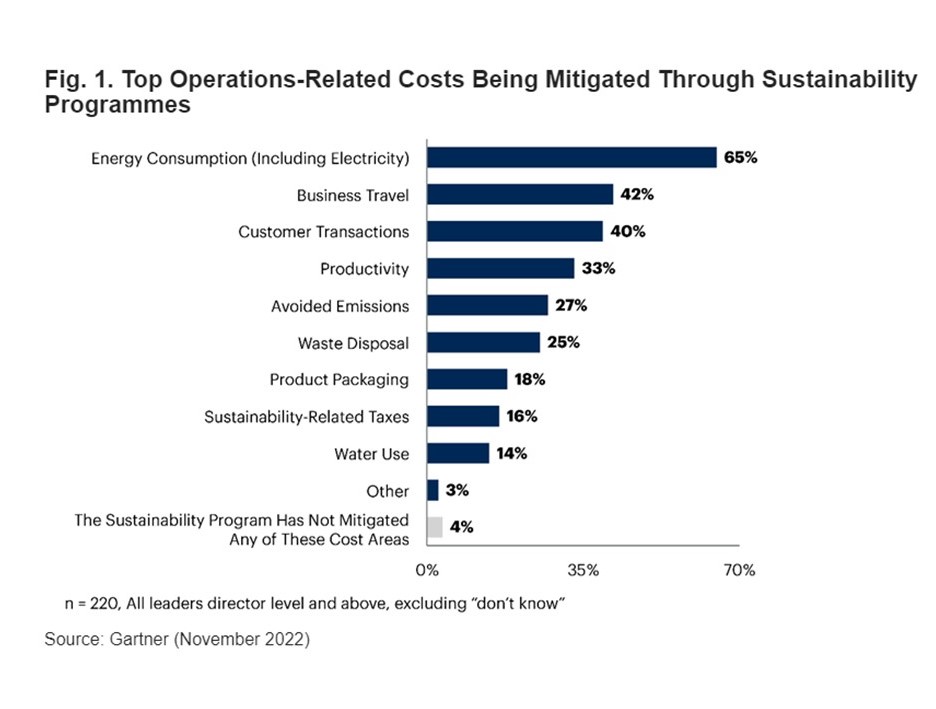Gartner research has revealed that the majority (87 per cent) of business leaders expect to increase investment in sustainability initiatives over the next two years
This finding comes as customers, as primary stakeholders, increasingly place pressure on organisations to act on sustainability issues.
Four fifths (80 per cent) of leaders surveyed by global research and consulting company Gartner cited customers as the primary stakeholder group demanding action in this area, followed by investors (60 per cent) and regulators (55 per cent).
Meanwhile, 86 per cent of executives said they see sustainability as an investment which protects their organisation from negative disruption.
Additionally, 83 per cent said sustainability programme activities directly created both short- and long-term value for their business, while 80 per cent indicated that sustainability helped their organisation optimise and reduce costs.
More specifically, energy consumption (65 per cent), business travel (42 per cent) and customer transactions (40 per cent) were cited as the top areas where outgoings were being mitigated.

“Sustainability enables businesses to cope with disruption. Economic uncertainty, geopolitical conflict and escalating materials and energy costs are forcing businesses to re-examine all forms of expenditure,” said Kristin Moyer, distinguished vice-president analyst at Gartner.
“This focus on essentialism, in combination with increasing stakeholder desire to see progress on environmental, social and governance (ESG) goals, creates new opportunities for organisations to grow while mitigating cost and risk.
“Executive leaders are achieving both operational and supply chain savings through their sustainability programmes. This kind of ‘two for one’, where sustainability investment supports a business goal like cost optimisation, significantly enhances the programme’s impact by creating a virtuous cycle.”
>See also: How organisations can use AI to drive sustainability efforts
Sustainability driving growth and innovation
Elsewhere in the study, it was made apparent that sustainability can also enable new value creation and business growth opportunities, with 57 per cent of respondents citing a strong connection between sustainability programmes and income statement results.
What’s more, 42 per cent are leveraging sustainability activities to drive innovation, differentiation and enterprise growth through sustainable products.
Moyer added: “Investing in sustainability can support product differentiation but be wary of greenwashing risks – there are no shortcuts to sustainable growth.
“Focus on product attributes that are important to customers and how these priorities shape buying decisions. When viewed through a strategic lens, sustainability can provide a ray of sunshine for businesses during difficult market conditions.”
221 executives across North America, Europe and Asia/Pacific, in director roles or above, were surveyed by Gartner in June and July 2022.
Related:
How collaboration and tech can help achieve business sustainability — Vodafone Business research has revealed that further collaboration and better use of tech will be key to enabling business sustainability goals.
Seven top tips for saving on energy bills while using IT — Here are seven tips for companies and staff to keep energy bills down, while continuing to innovate with IT.







